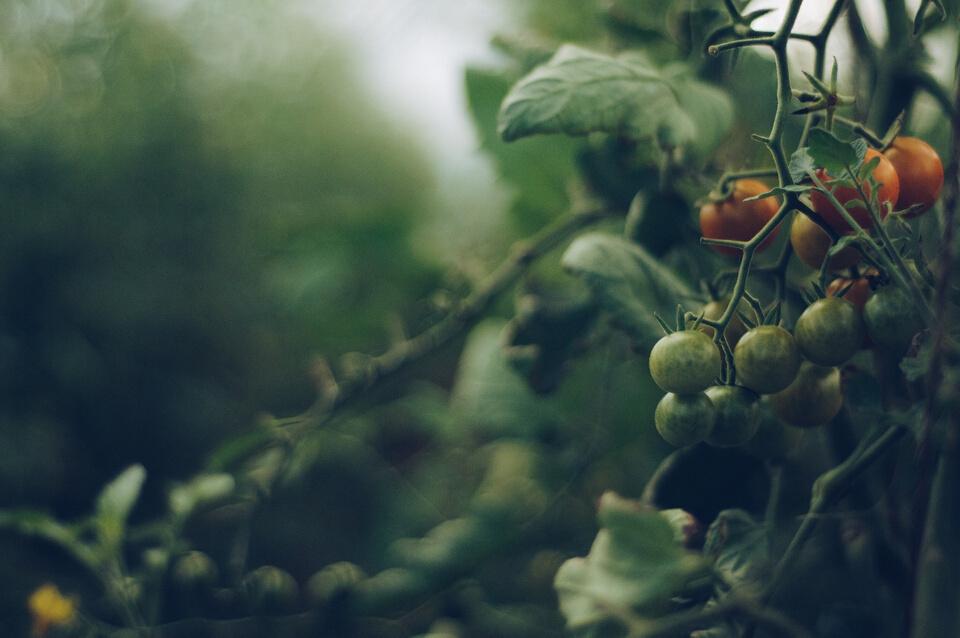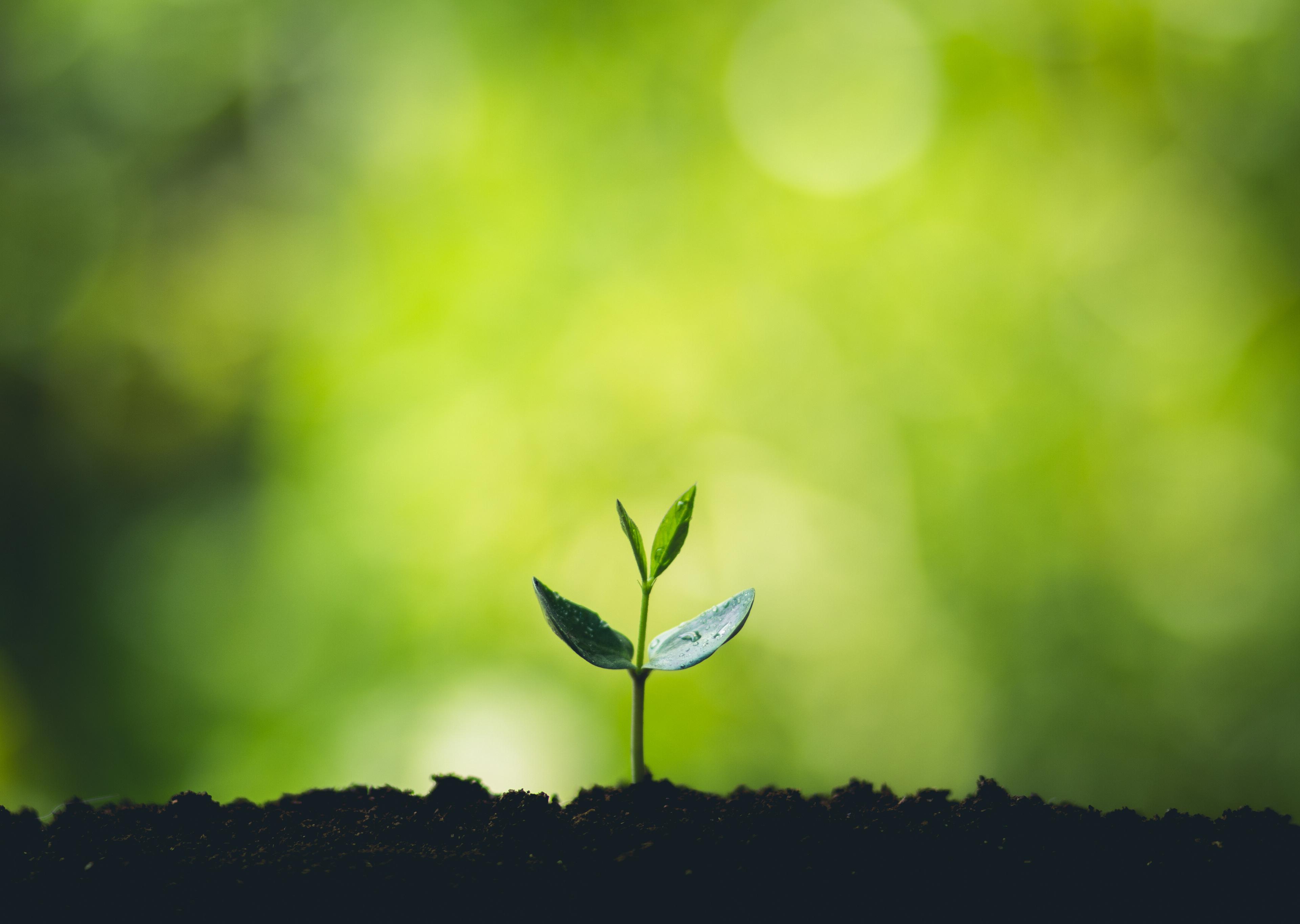Spring 2020
CHAPTER ACTIVTY ATLANTIC
The Legislative Assembly of PEI adopted a new, more ambitious GHG reduction target of 1.2 Mt CO2e by 2030, which is a 40% reduction below 2005 levels. Right now, Prince Edward Island’s GHG emissions are 10% below 2005 levels, or 25% of the way towards the newly adopted target (Note: PEI does not include the GHG emissions from fossil fuel-generated electricity imported from New Brunswick). Current efforts are expected to lower emissions by 0.18 Mt CO2 e (or 180 kilotonnes) by 2030. Efforts to reduce emissions by an additional 0.32 Mt CO2e (or 320 kilotonnes) will be needed to meet the new target. Find more info here.

IN THIS ISSUE, WE'RE COVERING: WHAT'S HAPPENING IN EACH CHAPTER FEATURED PROGRAM GOOD ENVIRO NEWS FROM AROUND THE WORLD
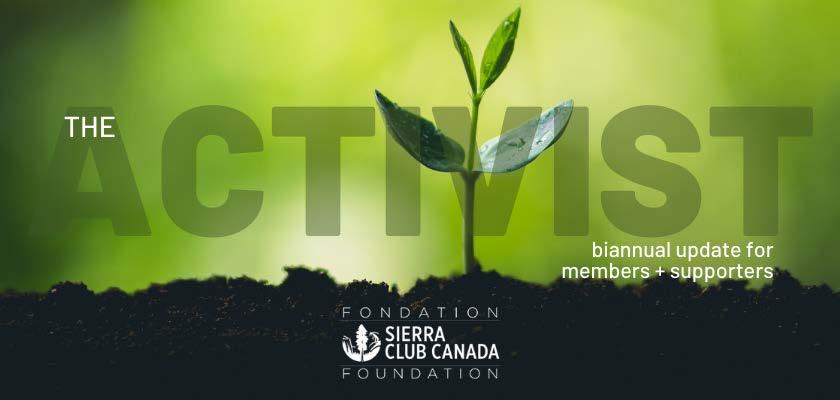
The Atlantic Chapter is asking people to submit comments on achieving this target to:
Dept. of Environment, Water and Climate Change
4th Floor, Jones Building
11 Kent Street - PO Box 2000
Charlottetown, PE C1A 7N8
Phone: 902-368-5044
Toll-free: 1-866-368-5044
Email: DeptEWCC@gov.pe.ca
QUEBEC
KEEPING CALM AND SAUNTERING ON
We had hoped to re-start Saunter activities this Spring, but this is clearly not possible in the current circumstances. Saunter is an outing programs where Indigenous knowledge keepers share their knowledge of natural and cultural features in the Montreal area.
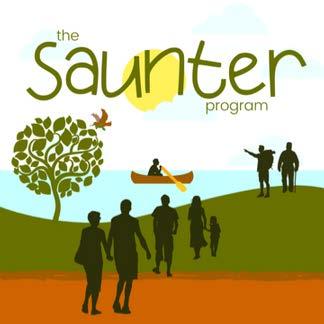
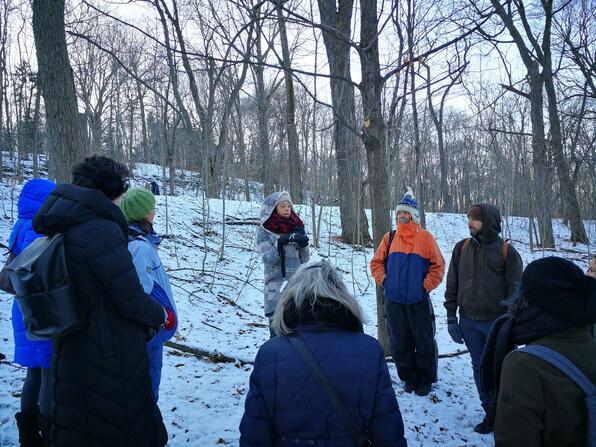
We hope to restart these offerings later in the summer or fall. Stay tuned!
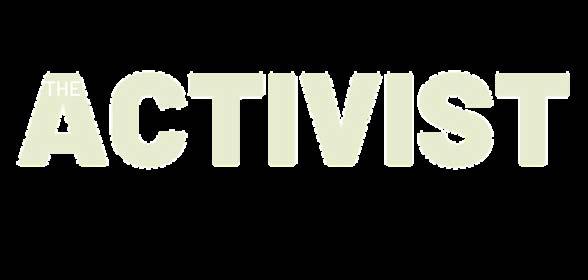

Trees, plants, waterways, insects, wildlife, even the tiniest micro-organisms - all play a vital role in supporting our shared ecosystem. Our failure to respect life – organic, animal, and human – has led to the ecological crisis in which humanity now finds itself. We invite you to participate in the Saunter Program – Indigenous ecology learning tours designed to bring city dwellers into the beautiful landscapes of Greater Montreal and surrounding areas.
SAVING TECHNOPARC WETLAND
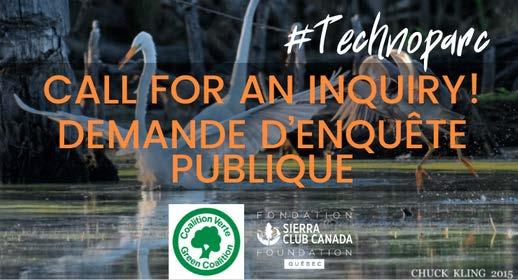

Home to more than 172 species, including the endangered Least Bittern, nesting green herons and other migratory birds, the Technoparc Wetland complex remains under siege by the on-going threat of further development.
Earlier this year, it was revealed in Quebec provincial court that no developers in Montreal have ever heard the word “No” to any project proposal, regardless of the environmental impact of their proposed development. Green Coalition Verte and Sierra Club Quebec are calling for a public inquiry into how Québec’s Minister of Environment and Climate Change review development proposals. Join with us to protect irreplaceable ecosystems like
December 2019 Saunter outing THE SAUNTER PROGRAM IS A PARTNERSHIP OFONTARIO
THUNDERING FOREST WILL NOT GO SILENTLY
On January 25, 2020, the Niagara Peninsula Conservation Authority (NPCA), levelled charges against GR Canada, a developer associated with the Riverfront Residential development in Niagara Falls, the second charges levelled against GR Canada for illegally cutting trees on this site within past two years. At stake are ecosystem that are part of the irreplaceable Thundering Forest, an area of Carolinian forest and hawthorn savannah that is a refuge for rare species such as the Great Plains ladies’ tresses orchid and endangered bats, providing habitat for the endangered Acadian flycatcher, the brown thrasher, field sparrow and black-billed cuckoo.
Our own Dr. John Bacher explains how this crime against nature came to be and provides his "Analysis of the Cut."
PRAIRIE
HASTY CUTS PUT PARKS & NATURE AT RISK
Alberta’s precious provincial parks were put on the chopping block in the latest provincial budget. According to the Chair of the Prairie Chapter, Michelle Murphy, “It is concerning that the province would remove protections from provincial parks and natural areas when it has already committed to protecting 17% of land and inland waters by the end of 2020 as part of the Pathway to Canada Target 1 initiative. Currently, Alberta protects 14.7% of land and inland waters. The loss of park protections would stray from this commitment.”
Concerned Albertans should contact their MLA and the Minister of Environment and Parks to ask them to reverse these cuts. Read more here.
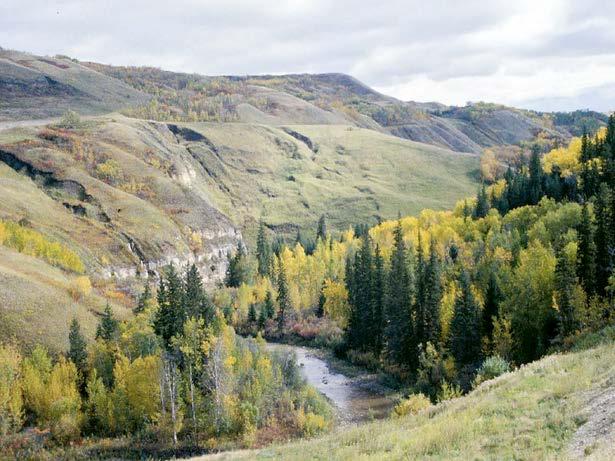
FEATURED PROGRAM
WILD CHILD GOES VIRTUAL - FOR NOW

In response to the Covid-19 crisis, our Wild Child educators have stepped up with resources and ideas on how families can keep connecting with nature even as we keep our distance from each other.
Check out the resources here.

a great addition to our collection."Greene Valley Provincial Park photo: Alberta Parks
RADIOACTIVE WASTE DISPOSAL
BY DR. OLE HENDRICKSON CONSERVATION CHAIR
Many of you responded to our appeal, “On-site Disposal of Nuclear Reactors Is Not Acceptable,” by sending letters last December to federal officials and to Canada’s “independent” regulator, the Canadian Nuclear Safety Commission (CNSC).
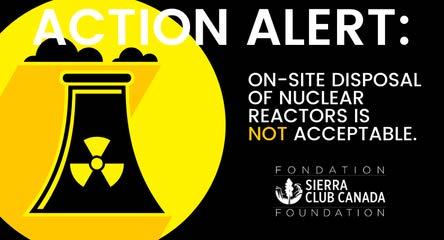
I regret to report that the CNSC is pushing ahead. It is asking its five Commissioners to approve new rules allowing permanent disposal and abandonment of radioactive waste at nuclear reactor sites at a Thursday June 18th closed-door meeting. It denied a request by leading public interest organizations to comment at the upcoming virtual meeting.
At issue is an 842-page “Commission Member Document” with five separate “regulatory documents” addressing various aspects of radioactive waste management. While the CNSC purports to have addressed public comments on these documents, it did not acknowledge receipt of your letters.
In fact, the CNSC has doubled down with additional language allowing abandonment of future nuclear facilities, such as small modular reactors, if their removal is not “practicable”.
Permanent waste disposal at reactor sites directly conflicts with International Atomic Energy Agency (IAEA) guidance. The new rules pave the way for CNSC approval of a giant radioactive waste mound at Chalk River, Ontario; entombments of shut-down federal reactors in Ontario and Manitoba; and a deep geological repository for the burial of high-level nuclear fuel waste (two sites are currently under consideration, in Ignace and South Bruce, Ontario).
In February, the federal government agreed to an IAEA recommendation that it, “should enhance the existing policy and establish the associated strategy to give effect to the principles stated in its Radioactive Waste Policy Framework.” The government said that, “Natural Resources Canada will review its existing policy for radioactive waste, and consider how it may be enhanced.” This review, which Natural Resources Canada officials say will include consultation with Indigenous groups and the public, has been delayed by the pandemic.
It appears that CNSC is attempting to pre-empt the outcome of this review with new rules that would permit the nuclear industry to “solve” its waste disposal challenge using quick and dirty schemes that do not conform to international norms.
In response, Sierra Club Canada Foundation and 100+ other organizations and experts sent a letter on May 15th to Natural Resources Minister Seamus O'Regan, asking him to suspend all decision-making involving radioactive waste disposal until Canada has a sufficient radioactive waste policy in place. Here is the letter in English and in French.
We are continuing to push back on this dangerous plan for nuclear waste, as you will read here in this Opinion published in The Hill Times.
GOOD ENVIRO NEWS FROM AROUND THE WORLD
The United States’ first bailout did not prop up the oil industry (we are not seeing the same in Canada!)
We love to hear the voices of YOUTH! Please stay connected to the Canadian Biodiversity Youth Network on social media and lend your own voice to their important efforts. Here’s a great post about the urgent need to save some of our most atrisk species.

Our Oceans Can Recover – If We Double Down
Words of guidance and hope from Elder Albert Marshall from Eskasoni, Unima’ki (Cape Breton), Information Morning, CBC Radio
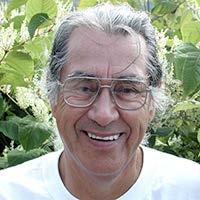
George Monbiot: The horror films got it wrong. This virus has turned us into caring neighbours.
We claim her as Canadian for good reason. Booker Prize winner (The God of Small Things), prodigious author and human rights advocate Arundhati Roy walks us through "The pandemic is a portal."
Thank you to the wonderful work of Sierra Club BC on adopting Indigenous-led knowledge to transform their work culture.
Our natural world was taken for granted.
the future generations.
Elder Albert Marshall from Eskasoni, Unima’ki (Cape Breton)
This virus ... it’s really a message from our Mother Earth.
It’s given us a time-out in which we have to seriously reflect and really look at where we come from and how we got here.
We have an inherent responsibility to ensure that while we are here our actions will not cause negative reactions not only to the natural world, but also forThis photo of Elder Albert Marshall is from the website of UINR–Unama’ki Institute of Natural Resources. Learn more about the important work of the institute here.
FEELING ANXIOUS?
The social and economic upheavals caused by, and appearing adjacent to, the pandemic may feel overwhelming. You may worry for your farflung friends and family, global political stability, or you may be grieving for your life before the pandemic, whether you’re physically distancing by working from home, or a frontline worker facing daily exposure. It is important to understand that your reaction to the crisis is a normal reaction to abnormal circumstances.
The crisis has thrown pre-existing inequalities into stark relief, whether you’re facing financial difficulty, access to green space, or living with or caring for someone with pre-existing conditions. Whatever your feelings about climate change and the pandemic may be, try to create some space to feel and accept them. Decide what you need to do to honour them. We have prepared a slide deck with some of these helpful resources here.

BUILD RESILIENCE IN YOUR COMMUNITY
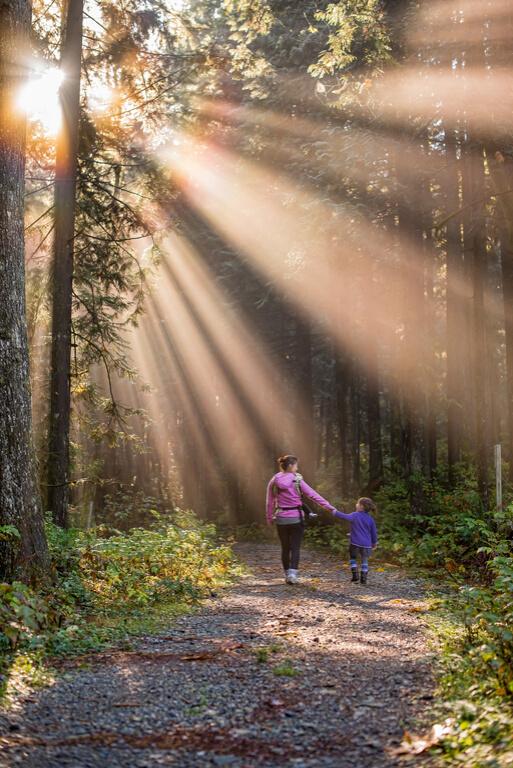
If you are in a position to help, consider volunteering for a local Covid-19 response pod in your area. A list and map of current existing pods can be found here. If you are able, you can consider beginning your own neighbourhood pod! You can find instructions and assistance here. If you need help, don’t hesitate to contact your local response group for resources.
We know that the pandemic has challenged our local food supply chains. If you are lucky enough to have a garden or a balcony, consider starting a Resilience Garden. If you can, consider planting a row to donate to your local food bank.
Help build local resilient communities!
